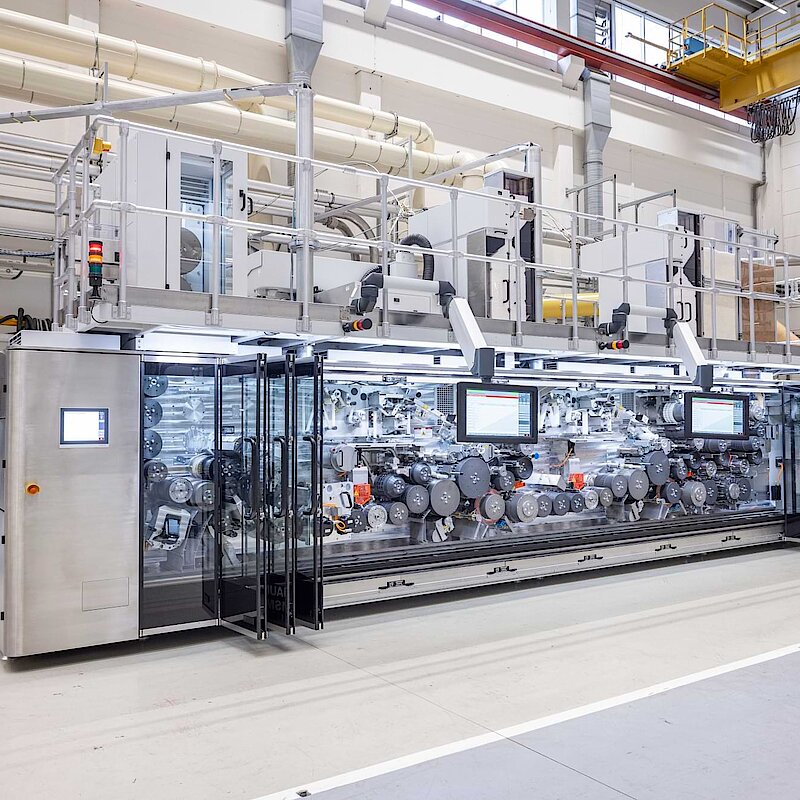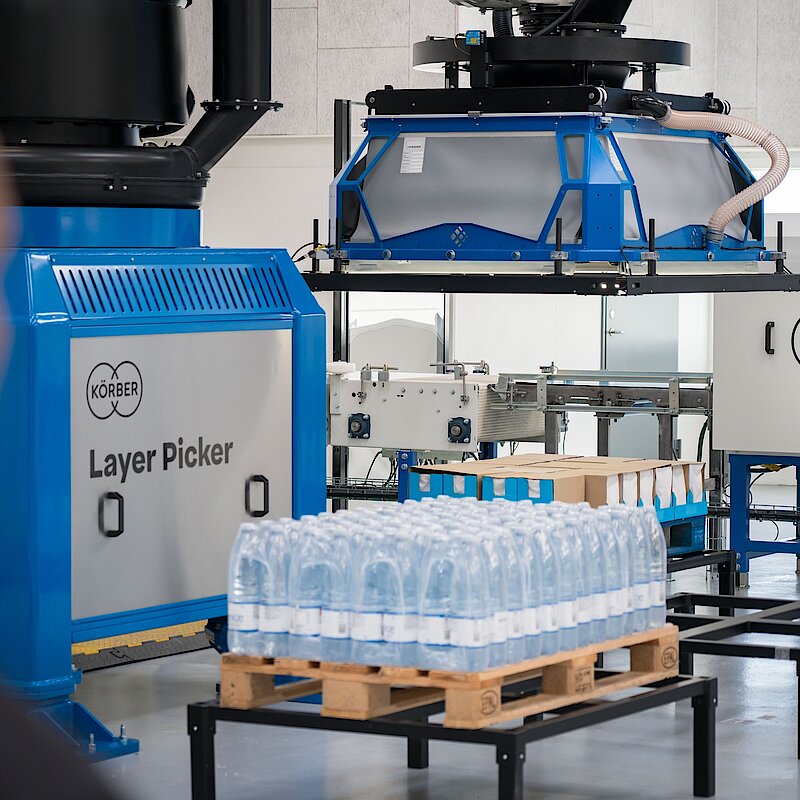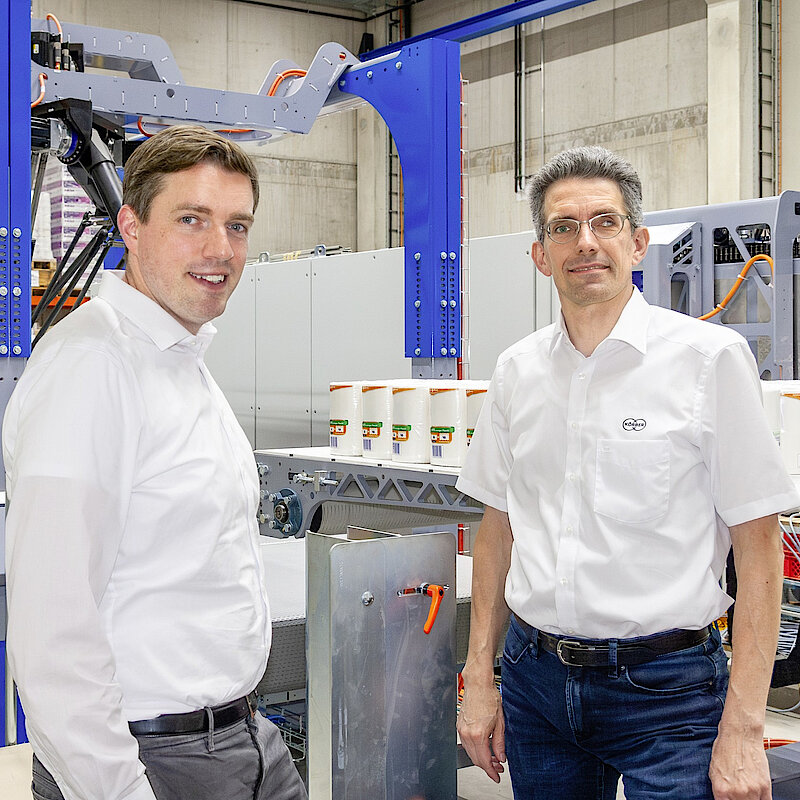Is AI the key? The global market demands greater efficiency from manufacturing plants
The mechanical engineering industry is now facing the great challenge of equipping the world's manufacturing sector with a completely new and intelligent operating system. At Körber Digital, we are certain that the implementation of AI and Data Science is the future of industrial production. Even the Institute for Innovation and Technology Berlin predicted that one third of the growth in the manufacturing industry will be enabled by the use of AI in the coming years. And there are considerable advantages:
- less downtime due to AI-based predictive maintenance
- higher product quality due to early error detection during production
- efficient cooperation with industrial robots using AI algorithms
- autonomous product development by intelligent CAD systems
- autonomous, real-time production adjustments based on sophisticated analytics applications
Over half of industrial companies see quality control in particular, as the most promising field of application, according to the results of a study of the Massachusetts Institute of Technology (MIT) from January of this year. The following fields are inventory management (44%) and machine monitoring (32%). Of course, profit is also a considerable factor: Companies that increase their investments in this area are stating that their expectations of the projects have been met or even exceeded. AI is definitely coming at the right time for mechanical engineering and seems to be a major asset for compelling reasons.
What has the mechanical engineering industry tried so far to derive the potential from this data? So far, companies in this field have used the strategy of addressing the challenge by themselves. Larger companies, in particular, have made the effort to develop their own IoT platforms to enable smart networking of production plants and machines. Their main goal being to dominate the market with their specific solutions and therefore positioning themselves as 'top dogs' in the industry. To date, the impact has been meager. Over the years, manufacturing efficiency has increased only slightly and has thus fallen well short of expectations.
So the main question for companies in the mechanical engineering sector is: How can we come together to develop cutting-edge, digital solutions that yield results and create real added value for customers? How do we develop a leading operating system for factories and manufacturing plants worldwide?
A glance at other industries reveals a clear formula for success
Taking a look at other industries that are well advanced in change management and digital transformation processes, shows us a clear path: cooperation, networks and process-related transparency are proven to lead to success. By themselves industrial companies and mechanical engineers won't be able to compete against the combined IT expertise of software giants like Amazon or Google or reach the standard of AI other industries have achieved. The answer lies in a cooperative approach of building a digital ecosystem with established machine builders, suppliers, technology companies, start-ups and leading research institutions.
This is about more than just being first, it's about moving Europe as a whole, and the European manufacturing industry, forward through AI-powered manufacturing efficiency. To reach this goal, we must put aside the idea of competition, and realize that only with an open mindset and focus on mutual support and partnership, we can succeed to create valuable cooperation and coopetition.
The 'not-invented-here' syndrome is slowing down digital change
At first glance, the utilization of this successful strategy doesn't seem like it would be any more difficult than it was for other industries. In the financial sector, we find an industry that created an ecosystem with confident FinTechs and regulatory milestones like Open Banking, in which an open approach to data and technology has contributed to the further development of the entire industry. Meanwhile, among the top ten banks in Germany, there is not one that doesn't in some way or another cooperate with at least one of the circa 600 FinTechs. In mechanical engineering, this openness is proving difficult. Industry rich in tradition, especially in Europe, is used to thinking in terms of intellectual property and domain know-how. The fear of data theft and misuse of sensitive data makes data security a big and important issue. Combined with a pronounced 'not-invented-here' mentality, the mechanical engineering industry carries a millstone around its neck when it comes to building an ecosystem for manufacturing efficiency.
It's worthwhile to free oneself from this burden. The development of an ecosystem would encourage the use of AI as well as have positive network effects. After all, the larger the data pool from which algorithms can learn, the more effective AI solutions become. Production facilities and machines generate enormous amounts of data every day, from which a highly sophisticated AI can learn enormously, and come to valuable conclusions.
This is about Europe's new position on the playing field of the global digital economy
The history of the consumer internet is largely told. In the USA, with Amazon and Google, the B2C business is already well underway in its evolution with these two dominating platforms. Alibaba prevails from China. But for Europe and Germany, a new opportunity is opening up in B2B: the advancement of digital innovations. Global venture capital investors are increasingly focusing on precisely this area and want to expand their portfolio. Mechanical engineering has to answer this question: How can we make manufacturing more efficient worldwide? In terms of productivity and climate protection. This kind of operating system for worldwide production will be one of the prerequisites for sustainable global economic activity. Europe and Germany have an almost unfair advantage with the rare opportunity of bringing together the excellent knowledge of mechanical engineers with the agile digital solutions of software developers and data scientists.
Germany is perfectly positioned for success in this area and with its hidden champions, has the ideal starting conditions. If the industry succeeds in overcoming competitive thinking and works on groundbreaking technology in the interests of the entire sector, there is a very good chance that a Silicon Valley of mechanical engineering will emerge in Europe.


















